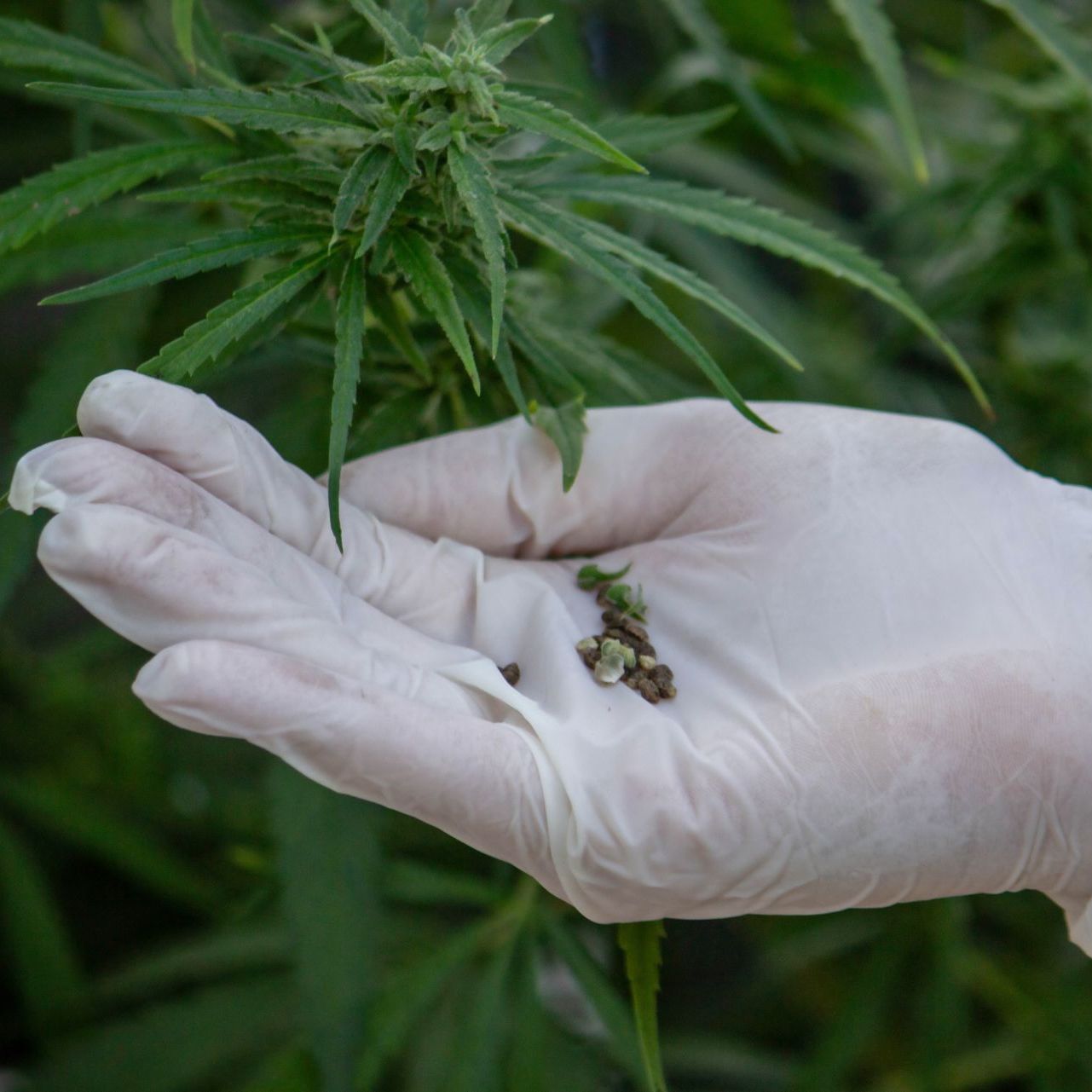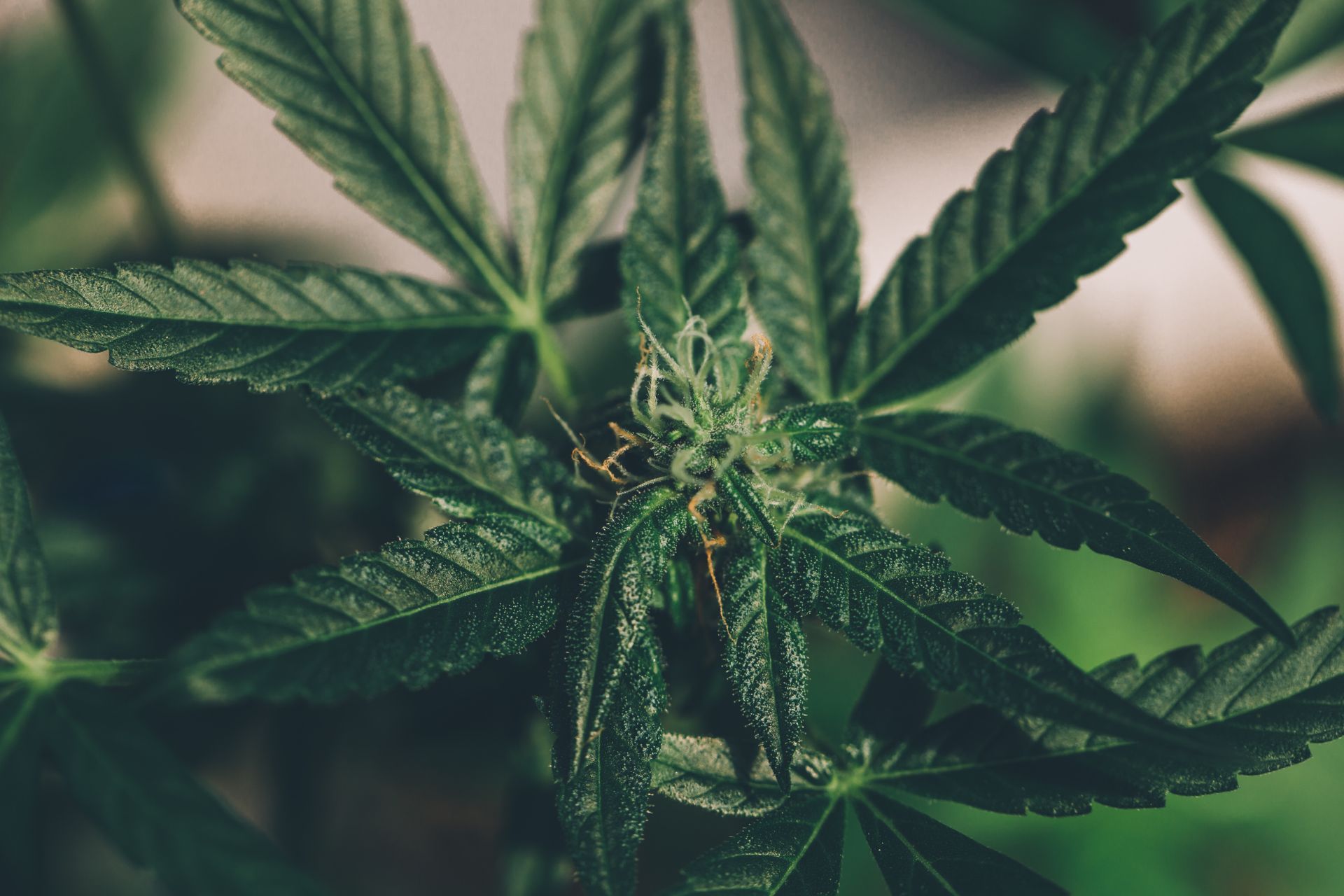Running a medical cannabis dispensary in Georgia means navigating a unique blend of state regulations, federal challenges, and evolving market dynamics. With patient numbers climbing steadily and the industry expanding, understanding insurance coverage and associated costs is crucial for dispensary owners aiming to protect their business and comply with legal requirements. This guide breaks down what you need to know about dispensary insurance in Georgia, highlighting key risks, coverage options, and cost considerations.
The Growing Medical Cannabis Landscape in Georgia
Georgia’s medical cannabis program has seen significant growth over recent years. As of August 2024, the state’s Low-THC Oil Registry lists over 21,000 active patients and more than 1,500 caregivers, reflecting a surge in demand for medical marijuana products according to Cannabis Risk Manager. This expansion has prompted the Georgia Access to Medical Cannabis Commission to approve more dispensaries, with 13 operational locations managed by six licensed companies as of late 2023 reports Georgia State Cannabis.
In October 2023, Botanical Sciences made headlines by beginning to dispense medical cannabis at independent pharmacies statewide, marking a shift towards more accessible patient care according to Cannabis Business Times. Yet, despite state-level progress, federal restrictions remain a hurdle. The DEA issued a warning in November 2023 that dispensing medical cannabis violates federal law, complicating operations for pharmacies and dispensaries alike Georgia Public Broadcasting highlights.
As the medical cannabis landscape evolves, many patients are finding relief from a variety of conditions, including chronic pain, epilepsy, and anxiety disorders. The growing body of research supporting the therapeutic benefits of cannabis has encouraged more healthcare providers to consider it as a viable treatment option. Additionally, educational programs and community outreach efforts are being implemented to inform patients and their families about the potential benefits and risks associated with medical cannabis use. This increased awareness is crucial in helping patients make informed decisions about their treatment options.
Furthermore, the economic impact of the medical cannabis industry in Georgia cannot be overlooked. The establishment of dispensaries and the cultivation of cannabis products have created numerous job opportunities, contributing to local economies. As more companies enter the market, competition is likely to drive innovation in product development, leading to a wider range of options for patients. This burgeoning industry not only provides essential services to those in need but also positions Georgia as a significant player in the national cannabis landscape, potentially influencing future legislation and policy changes.

Article By: Deb Sculli
Cannabis Insurance Specialist
TruePath Insurance is fully licensed and authorized to provide comprehensive insurance solutions across multiple states.
We proudly serve individuals and businesses nationwide, offering access to trusted regional and national carriers. Our goal is to help clients find reliable, affordable coverage that aligns with their goals—whether for personal protection, business stability, or long-term financial security.
Why Dispensary Insurance Is Essential in Georgia
Operating a dispensary involves multiple risks. From regulatory compliance and product liability to theft and property damage, the potential exposures can be substantial. Insurance offers a safety net that helps dispensary owners manage these risks and protect their investments.
One notable challenge is the federal-state legal conflict. Even though Georgia authorizes medical cannabis, federal law still classifies cannabis as a Schedule I substance. This discrepancy means that many traditional insurers hesitate to cover cannabis businesses, leading dispensaries to seek specialized policies tailored to their needs. This can often result in higher premiums and limited coverage options, making it crucial for dispensary owners to thoroughly research and understand their insurance needs to ensure they are adequately protected.
Gary Long, CEO of Botanical Sciences, emphasizes the importance of trust and professionalism in the cannabis supply chain, especially as independent pharmacies begin dispensing products. He notes, “That’s the one thing that we love most about this, to be honest with you, is that their trust and professionalism is unmatched, quite honestly, outside of your physician” according to Cannabis Business Times. Insurance plays a key role in reinforcing that trust by ensuring businesses can handle claims and liabilities responsibly.
Moreover, the evolving landscape of cannabis regulations in Georgia adds another layer of complexity to the insurance needs of dispensaries. As laws change and new guidelines are introduced, dispensary owners must stay informed and adapt their insurance policies accordingly. This not only protects them from potential legal repercussions but also helps to maintain their reputation in a competitive market. For instance, dispensaries that invest in comprehensive insurance coverage can demonstrate their commitment to safety and compliance, which can be a significant selling point for consumers who prioritize quality and reliability in their cannabis products.
Additionally, the financial implications of not having adequate insurance can be severe. In the event of a lawsuit or a significant loss, dispensary owners without proper coverage may find themselves facing crippling out-of-pocket expenses. This could jeopardize not only their business but also their ability to continue serving their community. As the cannabis industry continues to grow, the importance of robust insurance solutions becomes even more apparent, as it not only safeguards individual businesses but also contributes to the overall stability and credibility of the industry as a whole.

Types of Insurance Coverage for Georgia Dispensaries
Dispensary owners should consider a combination of insurance policies to address the broad spectrum of risks they face. Here are the most relevant coverages:
General Liability Insurance
This coverage protects against third-party claims for bodily injury or property damage occurring on dispensary premises. For example, if a patient slips and falls inside the store, general liability insurance can cover medical expenses and legal fees. Additionally, this insurance can also provide coverage for incidents that occur off-site, such as promotional events or community outreach programs, where the dispensary may be held liable for injuries or damages.
Product Liability Insurance
Given the nature of cannabis products, product liability insurance is critical. It covers claims related to adverse reactions, contamination, or product defects that cause harm to consumers. This protection is vital for maintaining consumer confidence and mitigating costly lawsuits. Moreover, as the cannabis industry evolves, dispensaries must stay informed about regulatory changes and product safety standards to minimize risks associated with their offerings.
Property Insurance
Dispensaries invest heavily in inventory and equipment. Property insurance covers damage or loss due to fire, theft, vandalism, or natural disasters. Considering the high value of cannabis stock, this policy safeguards a significant asset. Furthermore, dispensaries should also consider business interruption insurance as part of their property coverage, which can provide financial support during periods when operations are halted due to covered events, ensuring that they can maintain their financial stability.
Crop Insurance
For dispensaries involved in cultivation, crop insurance protects against losses from pests, weather events, or other agricultural risks. This coverage helps stabilize operations and financial planning. It is essential for growers to partner with insurers who understand the unique challenges of cannabis cultivation, as this can lead to tailored policies that address specific risks, such as crop failure due to disease or unexpected climate conditions.
Workers’ Compensation
Georgia law requires businesses with employees to carry workers’ compensation insurance. This coverage provides wage replacement and medical benefits if employees are injured on the job, ensuring compliance and protecting both workers and employers. Additionally, dispensaries should invest in employee training and safety programs to reduce the likelihood of workplace injuries, which can lead to lower insurance premiums over time.
Cyber Liability Insurance
Dispensaries collect sensitive patient data and handle electronic payments, making them targets for cyberattacks.
Cyber liability insurance covers data breaches, ransomware, and other cyber risks, helping businesses respond swiftly and minimize damage. As technology advances, dispensaries must continuously update their cybersecurity measures and employee training to protect against evolving threats, making this insurance a crucial part of their risk management strategy.
Cost Factors Influencing Dispensary Insurance in Georgia
Insurance premiums for dispensaries vary widely based on multiple factors. Understanding these can help owners budget effectively and find the best policies.
Business Size and Revenue
Larger dispensaries with higher sales volumes typically face higher premiums. More customers and inventory increase exposure to liability and property risks. Additionally, larger operations often require more comprehensive coverage to protect against potential losses, which can further drive up costs. Owners should also consider how their business size affects their operational risks, as a larger staff may lead to increased worker's compensation claims if not managed properly.
Location and Security Measures
Dispensaries in high-crime areas or without robust security systems may pay more. Installing surveillance cameras, alarm systems, and secure storage can reduce premiums by lowering risk. Furthermore, the physical location of the dispensary can impact not only crime rates but also the likelihood of natural disasters, such as floods or hurricanes, which may necessitate additional coverage. Understanding the local environment and investing in appropriate safety measures can lead to significant savings on insurance costs over time.
Product Range
Dispensaries offering a wider variety of cannabis products, including edibles and concentrates, might incur higher costs due to increased product liability risks. The complexity of these products often requires more stringent quality control measures, which can also contribute to operational costs. Additionally, as the market evolves, dispensaries may need to adapt their insurance policies to cover emerging products, such as CBD-infused items or new delivery methods, further complicating their insurance needs.
Claims History
A history of insurance claims can raise premiums. Maintaining a clean record through careful operations and risk management benefits long-term costs. It's essential for dispensary owners to implement thorough training for employees on safety protocols and customer interactions to minimize incidents that could lead to claims. Regular audits and risk assessments can also help identify potential issues before they escalate, ultimately supporting a more favorable claims history.
Regulatory Compliance
Strict adherence to Georgia’s medical cannabis laws and licensing requirements can positively influence underwriting decisions. Non-compliance or legal issues can lead to higher rates or denial of coverage. Staying informed about changes in regulations is crucial, as the cannabis industry is constantly evolving. Engaging with legal experts and compliance consultants can help dispensary owners navigate these complexities, ensuring they remain in good standing and avoid costly penalties that could impact their insurance premiums.

Challenges Unique to Georgia’s Medical Cannabis Insurance Market
Georgia dispensaries face obstacles that complicate insurance acquisition and coverage scope. The federal prohibition of cannabis remains the largest barrier. Many national insurers avoid the market, pushing businesses toward niche providers who specialize in cannabis-related risks.
Additionally, data inconsistencies have affected the industry’s perception. For instance, patient enrollment figures reported by the Georgia Department of Public Health fluctuated significantly in 2023, initially listing over 30,000 active patients before revising the number down to about 13,000 due to inaccuracies according to the Atlanta Journal-Constitution. Such fluctuations can impact market projections and insurer confidence.
Another complexity involves out-of-pocket healthcare expenses in Georgia. A 2018 study found that patients spent 69% of their out-of-pocket health dollars on medicines, far exceeding inpatient and outpatient care costs
Modern Sciences reports. This trend underscores the importance of reliable access to affordable medical cannabis, which dispensaries must balance with operational costs and insurance expenses.
Tips for Securing the Right Insurance Coverage
Finding the right insurance policy requires a strategic approach. Here are practical tips for Georgia dispensary owners:
- Work with specialized brokers: Cannabis insurance is a niche market. Brokers familiar with state and federal nuances can identify carriers offering tailored solutions.
- Prioritize comprehensive coverage: Avoid gaps by bundling general liability, product liability, property, and workers’ compensation policies.
- Invest in risk management: Implementing strong security, employee training, and compliance programs reduces risk and can lower premiums.
- Stay informed on regulations: Georgia’s medical cannabis laws continue to evolve. Staying current helps maintain compliance and insurance eligibility.
- Review policies annually:
As your business grows, insurance needs change. Regular reviews ensure coverage remains adequate and cost-effective.
How Insurance Supports Georgia’s Medical Cannabis Expansion
Insurance is more than a safety net-it’s a foundation for growth. With patient enrollment surpassing 25,000 and dispensaries expanding, robust insurance coverage helps businesses scale responsibly Black Enterprise reports. It also fosters trust among patients and partners, a critical factor as independent pharmacies like Botanical Sciences enter the market according to Cannabis Business Times.
Despite federal warnings, the state continues to support program growth, approving more dispensaries and encouraging professional standards. Insurance coverage aligns with these goals by ensuring businesses can handle liabilities and maintain operational stability.
Comparison of Common Insurance Coverages for Georgia Dispensaries
| Coverage Type | What It Covers | Notes |
|---|---|---|
| General Liability | Bodily injury, property damage to third parties – $15,000 | Depends on product range and testing protocols |
| Product Liability | $1,500 – $5,000 | Based on location and customer traffic |
| Property Insurance | $2,000 – $7,000 | Varies with property value and security measures |
| Workers’ ComWorkers’ Compensation pensation | $3,000 – $10,000 | Reflects number of employees and risk level |
| Cyber Liability | $1,000 – $3,000 | For transportation vehicles |
Frequently Asked Questions About Georgia Dispensary Insurance
Q: Is insurance mandatory for medical cannabis dispensaries in Georgia?
A: While not all insurance is legally required, workers’ compensation is mandatory if you have employees. Other coverages are highly recommended to protect your business.
Q: Can dispensaries get insurance from traditional carriers?
A: Many traditional insurers avoid cannabis businesses due to federal restrictions. Specialized cannabis insurance providers are the best option.
Q: How does federal law affect dispensary insurance?
A: Federal prohibition creates challenges for coverage and banking. Some insurers may exclude cannabis-related claims or charge higher premiums.
Q: What can dispensaries do to lower insurance costs?
A: Implementing strong security, maintaining compliance, and working with experienced brokers can help reduce premiums.
Q: How often should dispensaries review their insurance policies?
A: Annual reviews are recommended to adjust coverage as your business grows or regulations change.
Q: Does product liability insurance cover adverse reactions to cannabis products?
A: Yes. Product liability insurance protects against claims related to harm caused by your products.
Q: Are there any recent developments affecting dispensary insurance in Georgia?
A: The expansion of independent pharmacies dispensing medical cannabis and federal DEA warnings are shaping the insurance landscape, requiring dispensaries to stay informed and adaptable.
Understanding insurance coverage and costs is a vital step for any Georgia dispensary owner. With the state’s medical cannabis program evolving rapidly, securing the right protection ensures your business can thrive amid regulatory complexities and market growth.
About The Author: Deb Sculli
I’m Deb, a Cannabis Insurance Specialist focused on helping dispensaries, cultivators, and cannabis-related businesses find the right protection. With a strong understanding of the industry’s regulations and risks, I work hard to simplify the insurance process—so my clients stay compliant and confidently safeguard their operations and investments.
Contact Us
WHO WE HELP
Serving the Cannabis Supply Chain
We cover licensed operators at every stage.
OUR BLOGS
Resources for Cannabis Business Owners
Stay informed and protected with our latest posts.
COMMON QUESTIONS
Cannabis Insurance Made Clear
Answers to the questions we hear most from cannabis business owners.
What types of insurance do you offer for cannabis businesses?
We offer commercial property, general liability, product liability, crop insurance, workers’ compensation, and cyber liability tailored to cannabis operations. These policies address the most common risks, such as crop loss, product claims, and facility damage.
Our agents will help you match the right coverage to your business type and scale, whether you're a dispensary, grower, processor, or distributor.
Why is specialized cannabis insurance necessary?
Standard business policies often exclude cannabis-related activities, which leaves significant exposure gaps. Cannabis-specific insurance covers unique industry risks like product recalls, crop theft, and regulatory compliance.
Having the right policy also satisfies licensing, leasing, and vendor requirements, allowing your business to operate legally and securely.
How does your agency ensure compliance with state regulations?
Many states require proof of specific insurance types before issuing or renewing cannabis licenses. We stay up-to-date on regulatory changes and ensure your policies meet state and local mandates.
That means you avoid surprises during audits or inspections and maintain good standing with licensing authorities.
How fast can I get a quote and bind coverage?
Request a quote and you’ll typically receive a custom proposal within 24 hours. Once you review and accept it, coverage can often be bound the same day, so your business isn’t left exposed.
We streamline documentation and communication to make setup fast and clear—no confusing forms or delays.
Do you support multi-state cannabis businesses?
Yes. We are licensed to operate in 36 states, including major cannabis markets. Whether you’re operating in one state or across several, we can design policies that address your regulatory and risk needs.
As you expand, our team adjusts your coverage accordingly—keeping your protection consistent across state lines.
What should I consider when selecting cannabis insurance?
Begin by identifying your key exposures—crop value, product inventory, employee safety, or cyber data. From there, choose coverage that aligns with these risks instead of opting for a basic or low-cost solution.
Also, look for a provider with cannabis expertise and responsive claims support—this experience helps during actual loss events.
Contact Us
Phone
Address







